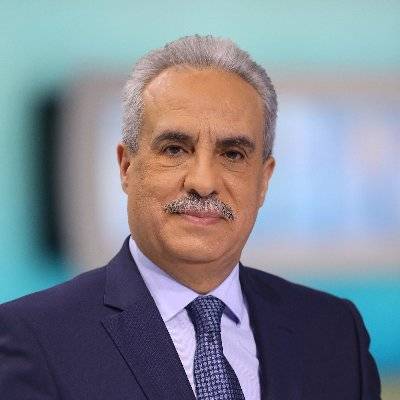In Lebanon, the peaceful movement, as part of the Arab Spring movements, subsided after it hit a sectarian system that is calcified and was eroded by corruption. As for Algeria, it was satisfied with some gains which, despite their importance, are much less than the hopes which existed when thousands took to the streets every week in mass protests. Meanwhile, in Sudan, it ended in a war between the same military institutions that had a tight grip on the country for decades with President Al-Bashir, and then repressed its people’s yearning for democratic civilian rule.
As for Iraq, which will soon mark the fourth anniversary of its angry mass movement, discussing it is complicated. The entire scene there has been complicated for at least twenty years. The demonstrations that erupted on 1 October, 2019, to include Baghdad and the central and southern provinces of the country, began by denouncing the deterioration of services and the worsening unemployment but, later, expanded to express anger at the entire political class, its corruption and the sectarian quotas that destroyed the country.
It was not easy for the October Movement to change the reality of the country, despite hundreds of deaths and thousands of injuries among its people. Most diseases affected all the institutions of the State and were then aggravated with Iranian domination and dependence on various aspects of the outside world, which made changing this entire scene very difficult.
READ: Palestine-Israel lawmaker uses ‘Arab Spring’ slogan as Israelis hold anti-government rallies
Last year, the demonstrators who participated in the Nisour Square protests in the heart of the capital, Baghdad, issued a statement summarising this dilemma by saying, “We asked you for the simplest demands, but you did not respond. We rose up against you and you killed us. We rejected your rule and you only increased in tyranny and corruption, and Iraq went from bad to worse because of you.”
There is nothing more frustrating for any nation than when hundreds of thousands of the people take to the streets in angry but peaceful, organised and dignified demonstrations, raising legitimate and specific slogans and demands, and then the authorities confront them with repression, complete disregard or both. This is because it would – especially if the protests continued for a long time, or were repeated on numerous occasions without any results – perpetuate this dangerous conviction that there is no benefit to be expected from peaceful movements and that the existing political reality with the power and brutality of the State’s security and military institution can only be faced with violence. There is also another possibility in the event that the authorities do not respond to their demands which is that a state of general submission and indifference to public affairs will prevail among the people, a situation no less destructive and dangerous than the first.
There is no doubt that the Iraqi authorities take action from time to time on one issue or another but, ultimately, they remain circumstantial and limited responses that do not meet the deep desire of the public opinion for a comprehensive, transparent and radical treatment of problems that have exacerbated frighteningly over the past years, especially rampant corruption. The latest example of this is the referral of the former Oil Minister, Ihsan Abdul-Jabbar, to the judiciary on charges of corruption, abuse of his position, and receiving bribes from a number of investors linked to contracts with his Ministry. This measure may receive some praise from the public opinion, but it will not cancel out the years-long demand to put an end to the corruption that has infested almost every member of the political class, along with the demand to move away from selectivity and circumstantial measures when dealing with some of these cases.
Of course, demonstrations take place in several countries in the world, raising specific demands, and yet they are not responded to. The political decision-maker is not always obligated to respond inevitably to such popular movements, but there is a difference between this happening in those countries and what is happening in ours. The latest example that can be presented in this context is what has taken place in France over the past months in terms of demonstrations opposing the extension of the retirement age to 67, yet President Macron did not back down.
READ: Netanyahu’s former adviser talks of return of Arab Spring to Tunisia
What can help in cases like this is that the various channels of expression, as well as the democratic mechanisms recognised there, are still active and have not given up their function, such as Parliament, the Constitutional Court and other institutions. This means that unpopular decisions or policies may pass, as long as they are legal. However, the citizen does not lose his ability to punish those who make these decisions with the next elections. The same thing happened recently with the Occupying State and the amendments of the extreme right-wing coalition ruling the judicial system. Despite all the massive and continuous demonstrations, this alliance went ahead with what it wanted and, although it is much more dangerous than just raising the retirement age in France, there is still the possibility of abolishing all of the amendments as soon as a new majority rises to power in any upcoming elections.
The problem we have in our Arab countries is that governments do not respond to the people’s legitimate and age-old demands for freedom, dignity and the rule of law, nor does the nature of the political system give any hope for the possibility of change through the peaceful transfer of power, and herein lies the fatal dilemma.
This article first appeared in Arabic in Al-Quds Al-Arabi on 15 August 2023
The views expressed in this article belong to the author and do not necessarily reflect the editorial policy of Middle East Monitor.


![Hundreds of Iraqi protesters chant slogans as they hold a national flag during a demonstration in Baghdad on June 20, 2012 AHMAD AL-RUBAYE/AFP/GettyImages]](https://i0.wp.com/www.middleeastmonitor.com/wp-content/uploads/2023/08/GettyImages-146590787-scaled-e1692200778295.jpg?fit=1200%2C800&ssl=1)









